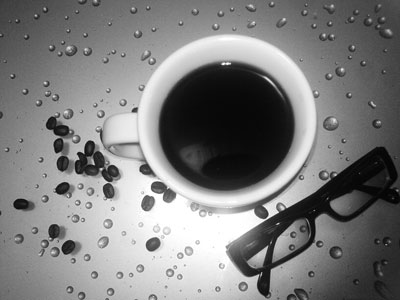All Nonfiction
- Bullying
- Books
- Academic
- Author Interviews
- Celebrity interviews
- College Articles
- College Essays
- Educator of the Year
- Heroes
- Interviews
- Memoir
- Personal Experience
- Sports
- Travel & Culture
All Opinions
- Bullying
- Current Events / Politics
- Discrimination
- Drugs / Alcohol / Smoking
- Entertainment / Celebrities
- Environment
- Love / Relationships
- Movies / Music / TV
- Pop Culture / Trends
- School / College
- Social Issues / Civics
- Spirituality / Religion
- Sports / Hobbies
All Hot Topics
- Bullying
- Community Service
- Environment
- Health
- Letters to the Editor
- Pride & Prejudice
- What Matters
- Back
Summer Guide
- Program Links
- Program Reviews
- Back
College Guide
- College Links
- College Reviews
- College Essays
- College Articles
- Back
Are You an Addict? MAG
“Slurped in black coffee or sipped in green tea, gulped down in a soda or knocked back in a headache pill, caffeine is the world’s most popular psychoactive drug.” – T. R. Reid, National Geographic
Why do humans, especially teens, consume so much caffeine? Perhaps 87-minute blocks are too much to handle. Maybe the AP course load is overwhelming. Or perhaps problems at home cause a lack of sleep. Everyone has a story.
On the other hand, there may be a scientific reason. Caffeine highs are followed by caffeine lows. To ward off the torpor, people ingest more caffeine. This cycle results in a need for caffeine: addiction. Researchers agree that regular caffeine use triggers a physical dependence, a mild form of addiction. And energy drink companies are profiting from it. In fact, “caffeinated energy drinks are the fastest-growing sector of the $93 billion domestic beverage industry,” contends the New York Times website.
Speaking of money, caffeine comes at quite a price. The average student consumes one caffeinated drink daily, at approximately $1.50 each. Some spend $500 per year on these drinks.
With such a strong market, companies struggle to stand out from the competition using crazy names like Monster, Freak, and Cocaine. In Cocaine’s case, the attention-grabbing name was its downfall; it was pulled from shelves. No matter the name, the drink will still stand out; it contains 280 milligrams of caffeine per can – more than six sodas.
But is it really possible to suffer a serious health problem from caffeine? Research has shown that people who consume excessive caffeine can experience insomnia, seizures, dehydration, and increased breathing rate. Caffeine overdoses can result in hallucinations, psychosis, and even death. How much caffeine does it take? Just how much caffeine is safe? Most experts agree that the daily caffeine intake for a healthy adult should not exceed 400 milligrams, which is less than two cans of Cocaine.
It’s important to keep in mind that many foods also contain caffeine, not just energy drinks and coffee. Red Bull packs 80 milligrams, whereas coffee contains 179. The difference? Caffeine is added to energy drinks and sodas, but coffee naturally contains it. Coffee also has no calories, fat, carbohydrates, sodium, or cholesterol. “In fact, coffee is exempt from federal food label programs precisely because it has zero nutritive value,” contends Cobblestone Coffee’s website. Additives, including sweeteners, syrups, and creamers, will cause the numbers to rise quickly, however.
Starbucks is infamous for adding flavored syrup and creamer to sweeten coffee. The additives make Starbucks’ drinks unhealthy, yet 64 percent of students in my high school have tried at least one.
However, caffeine should not be feared. Humans will always consume caffeine, but people should be conscious of how much they are putting in their bodies. After all, there are serious health effects associated with too much.
Better time management, extra sleep, and stress control will help students stay fresh and alert. Taking steps to rejuvenate naturally will lessen the need for caffeine, resulting in a healthier you.

Similar Articles
JOIN THE DISCUSSION
This article has 6 comments.

10 articles 0 photos 86 comments
Favorite Quote:
"And this, our life, exempt from public haunt, finds tongues in trees, books in the running brooks, sermons in stones, and good in everything." -- William Shakespeare